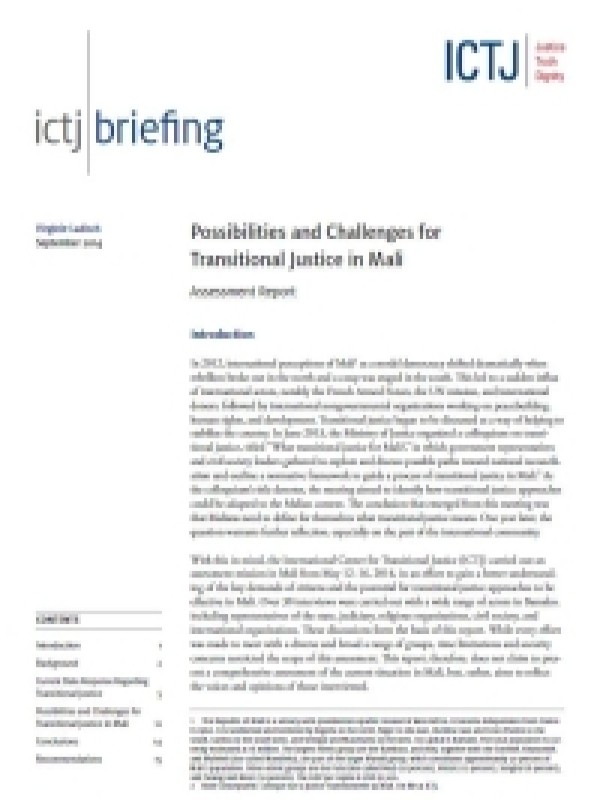This briefing paper examines the potential in Mali for appropriate and effective transitional justice approaches that are reflective of the primary concerns and demands of citizens. Over 30 interviews were conducted with a wide range of actors in Bamako, including representatives of the state, judiciary, religious organizations, civil society, and international organizations. It concludes that positive steps have been taken toward advancing accountability in the country, but victims and civil society remain critical of the lack of integration among different transitional justice mechanisms as well as the government's top-down approach in a context where the local and communal are of primary importance.
Possibilities and Challenges for Transitional Justice in Mali
This briefing paper examines the potential in Mali for appropriate and effective transitional justice approaches that are reflective of the primary concerns and demands of citizens. Over 30 interviews were conducted with a wide range of actors in Bamako, including representatives of the state, judiciary, religious organizations, civil society, and international organizations. It concludes that positive steps have been taken toward advancing accountability in the country, but victims and civil society remain critical of the lack of integration among different transitional justice mechanisms as well as the government's top-down approach in a context where the local and communal are of primary importance.
